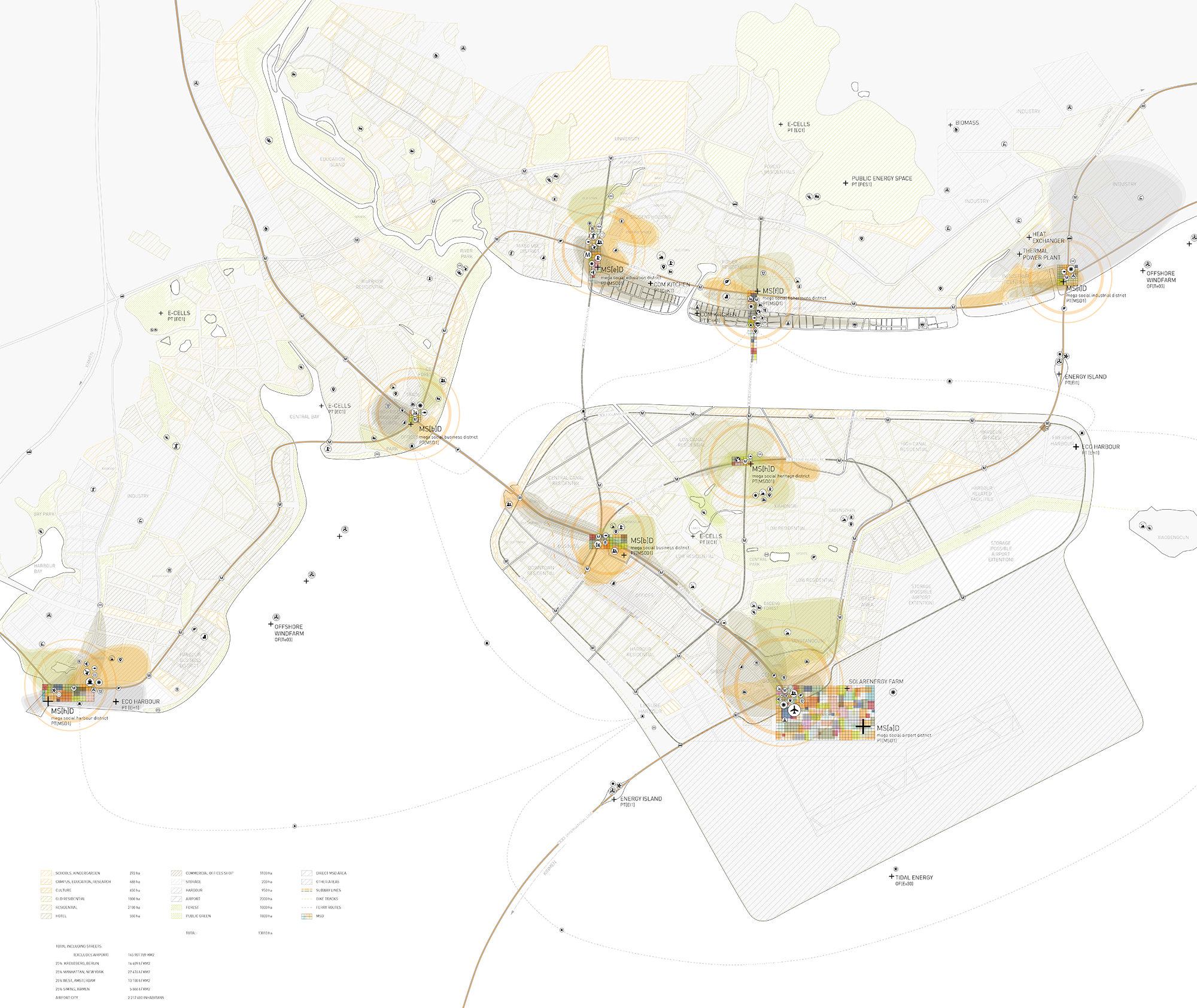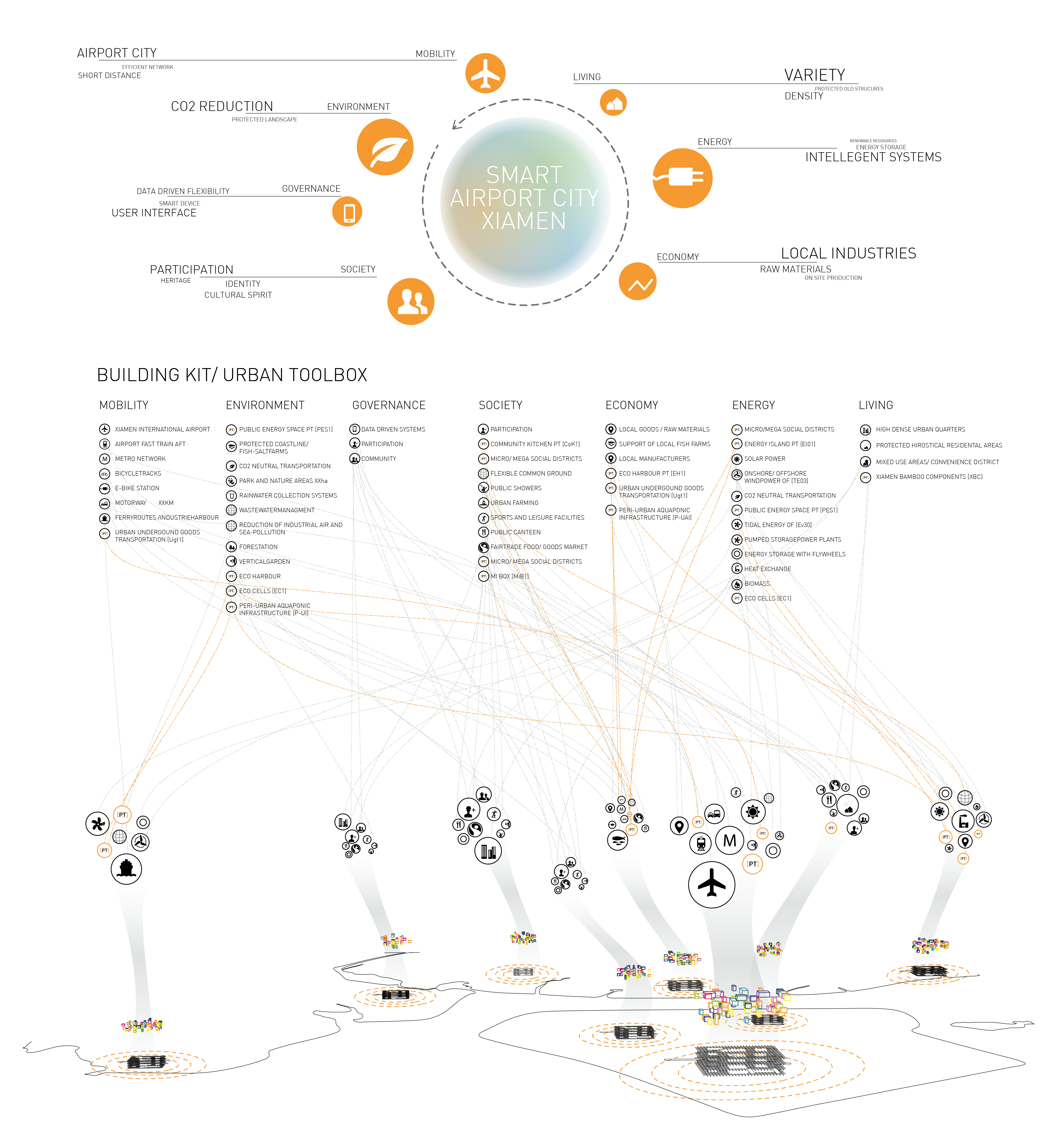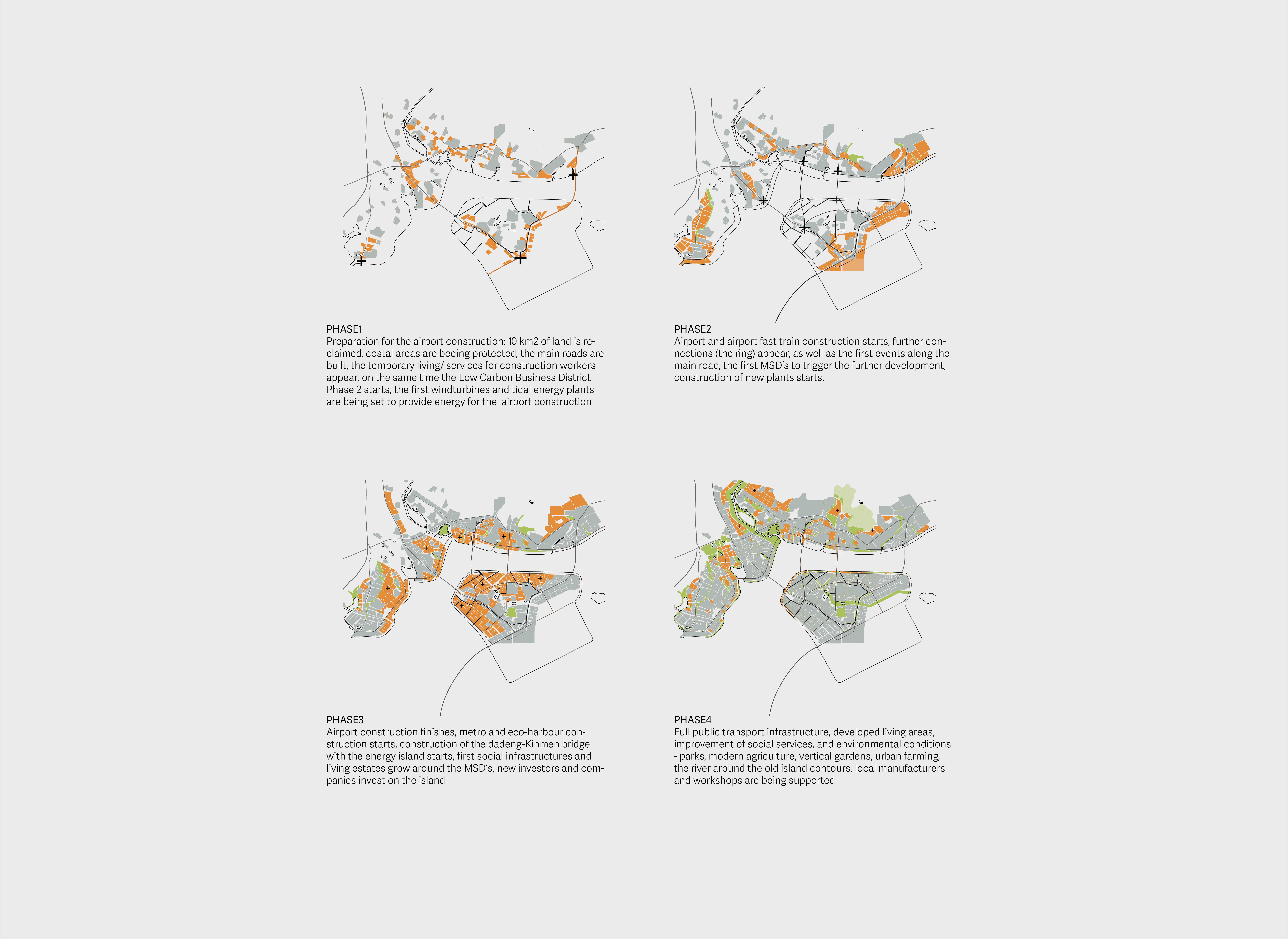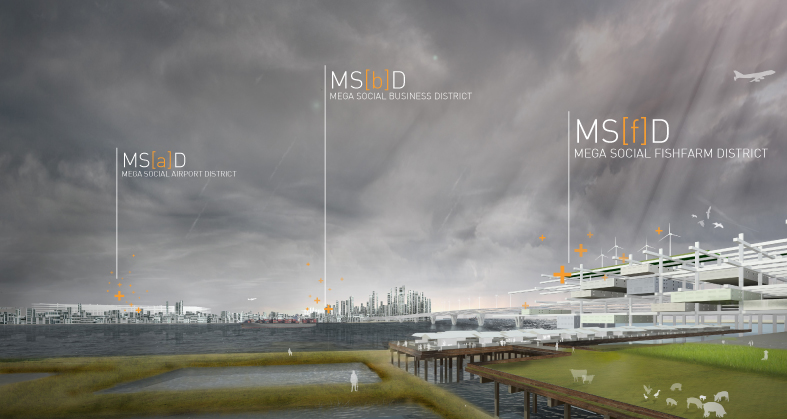Airport City
What is an airport city? And what difference does an airport make within an urban context?
Airports are generally of increasing significance in cities that are growing to metropolitain areas. There is a contradiction between the people´s needs for quick and easy transportation and their values when it comes to residential life. Cold and characterless terminals, inhuman scales and places with no identification lead to a mainly negative attitude towards airports beside of course the noise emission. Of course the airport should be build with highest standards and best technologies, especially today where CO2 emissions and environmental concerns conduct planning in generall, but the local value should play an important role in the process of designing an airport city as well. The existing neighbourhoods shouldnt be excluded by an airport but more be the identity bringing part of a whole new development.
The central airport is a key facility for the competitiveness of a territory. With its advantages of cultural exchange and its economical impact due to tourism, trade and general airport business a strong urban element is created.
Smart City
What is a smart city?
When it comes to smart cities often CO2 friendly masterplans are the result of an ongoing debate about latest technologies and smart features that save energy. But that is not the only argument that makes a city smart, instead we defined 7 aspects influencing the smartness of a city: mobility, society, environment, economy, living, energy and governance. These special fields constitute the foundation for a detailed building kit including all essential tools and elements for an environmental, society and economy friendly future of cities. The starting point of our proposal is based on the idea of a Micro/Mega Social District (MSD).The allround element is mainly providing space and area for social and community activities combined with public and technical transport and generation and storage of renewable energy.
Once defined and located at strategic important places in the map, the first layer consists of the main network of transport and the nodes, the so called Mega Social Districts.
The second layer consists of a supporting structure or network of secondary infrastructure with again these junction points, this time as micro social districts.




